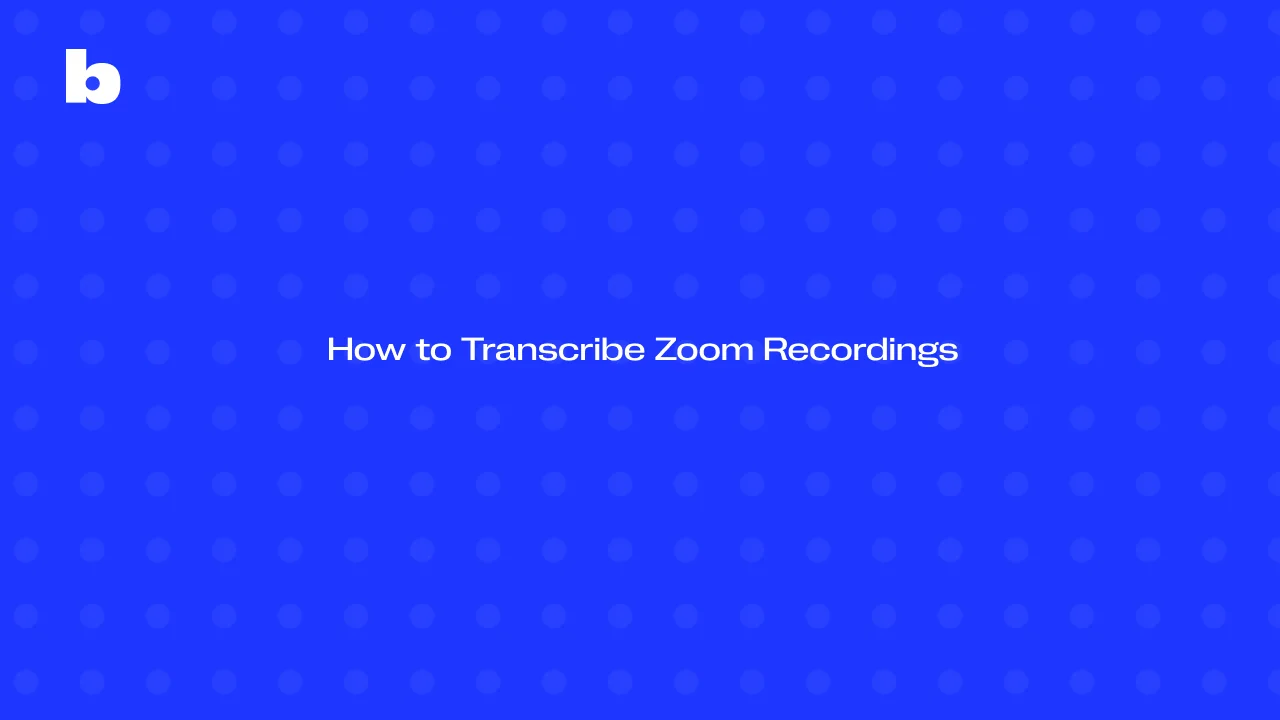
To transcribe Zoom meetings means to turn words spoken into readable and searchable text. It makes your life so much easier than manually taking down notes while trying to focus on what is being said in the meeting. This overcomes hurdles like forgetting important details mentioned, or missing key questions that were asked.
By reading further, you can learn how to transcribe Zoom recordings easily, as well as how to edit transcripts afterward, ensuring accurate information for your entire team.
Before Your Zoom Meeting
Before you start recording your Zoom meeting, it is important to note that there are settings you need to enable to transcribe Zoom meetings. Enabling the live transcript feature makes sure that your meetings are always automatically transcribed. This makes it easier to create audio transcripts and find, edit, review, and share crucial meeting notes after your next meeting starts and ends. Here are a few simple steps on how to enable Zoom transcription in just a few clicks:
- Sign in to the web portal:
- Go to the official website Zoom, and sign in using the correct credentials.
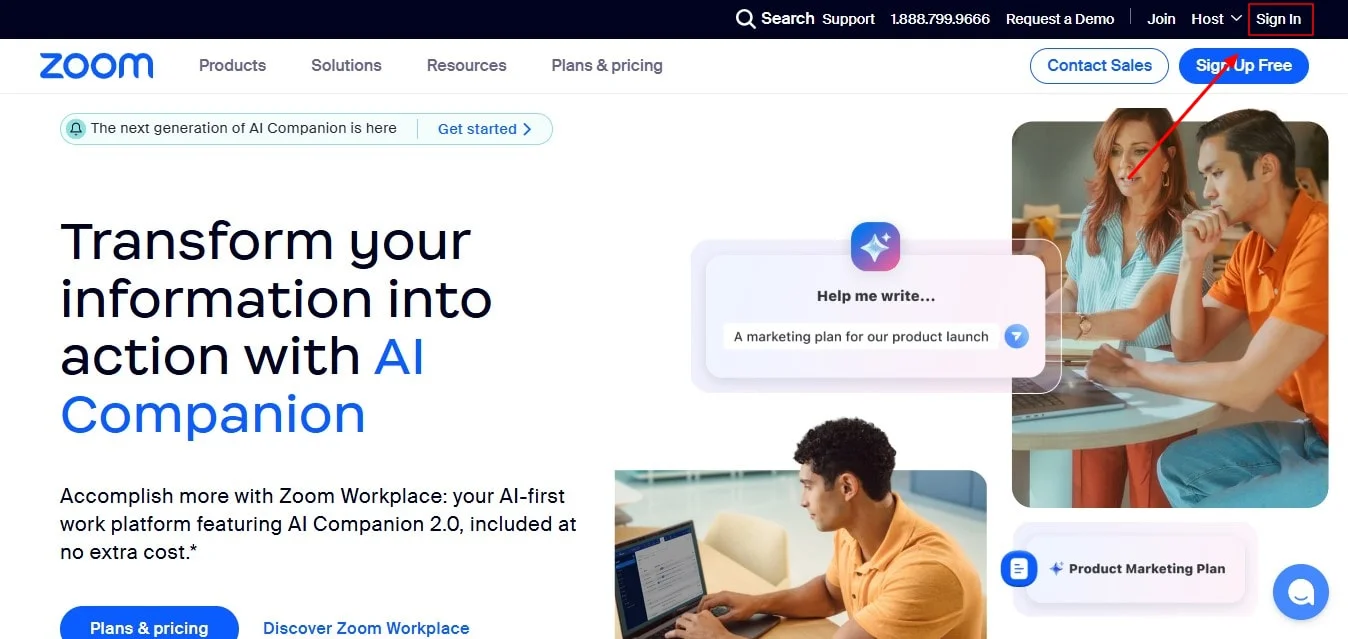
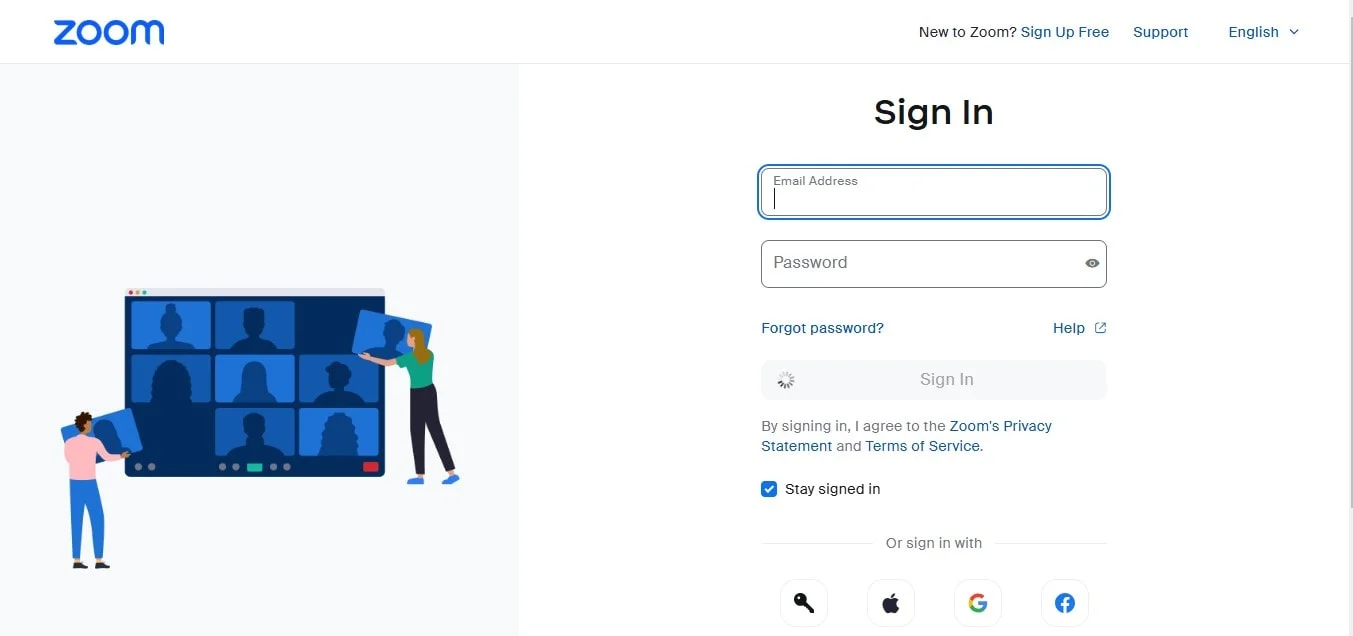
- Go to your account settings:
- After you have signed in, go to your Settings bar located on the left-hand side menu of your screen. This section allows you to customize many different features of your recordings and Zoom meetings.
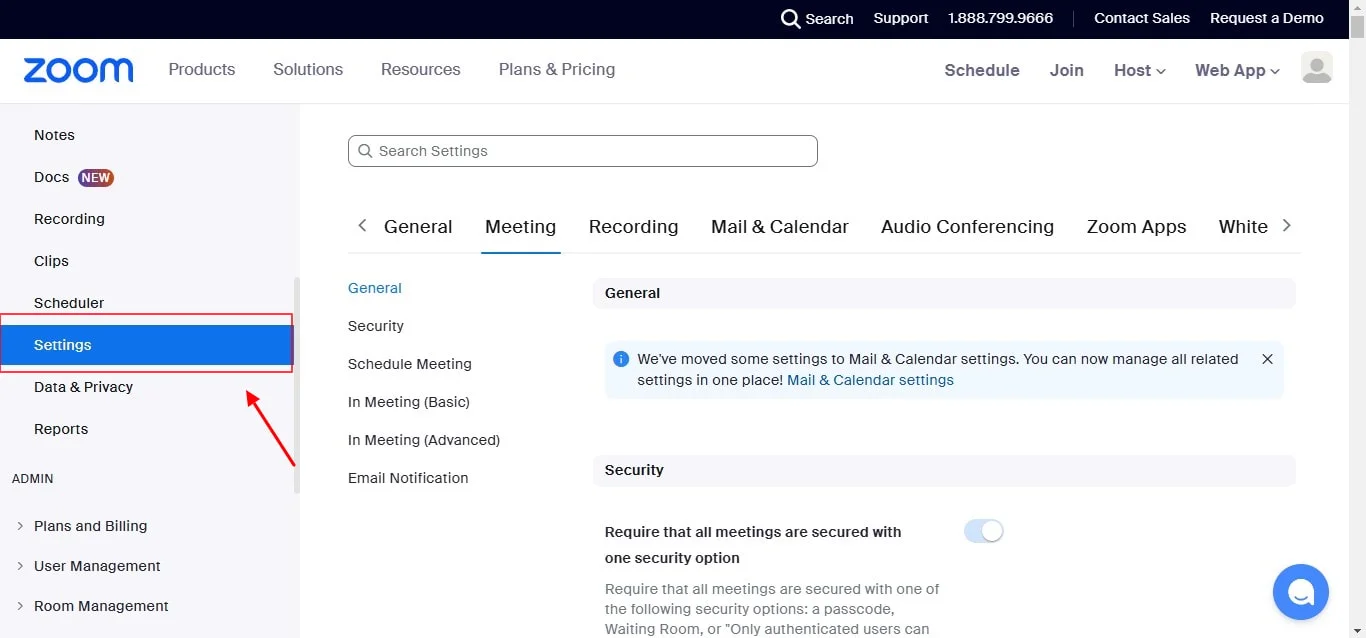
- Search for transcript:
- Right at the top of the page, you will see a settings bar. Use this bar to search for “transcripts”. The search will then show all results for transcript-related features.
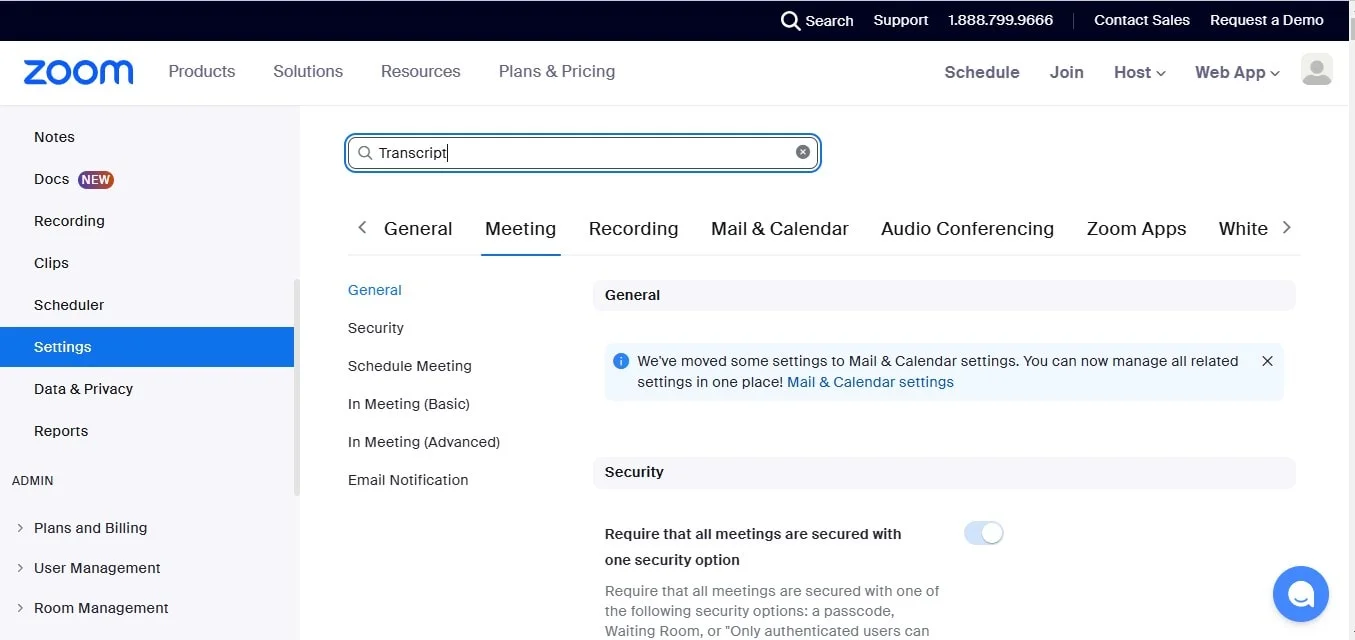
- Enable full transcript:
- Scroll down to the section that says Meeting>In Meeting (Advanced)
- Find the “full transcript” option. Click the toggle switch to enable this feature.
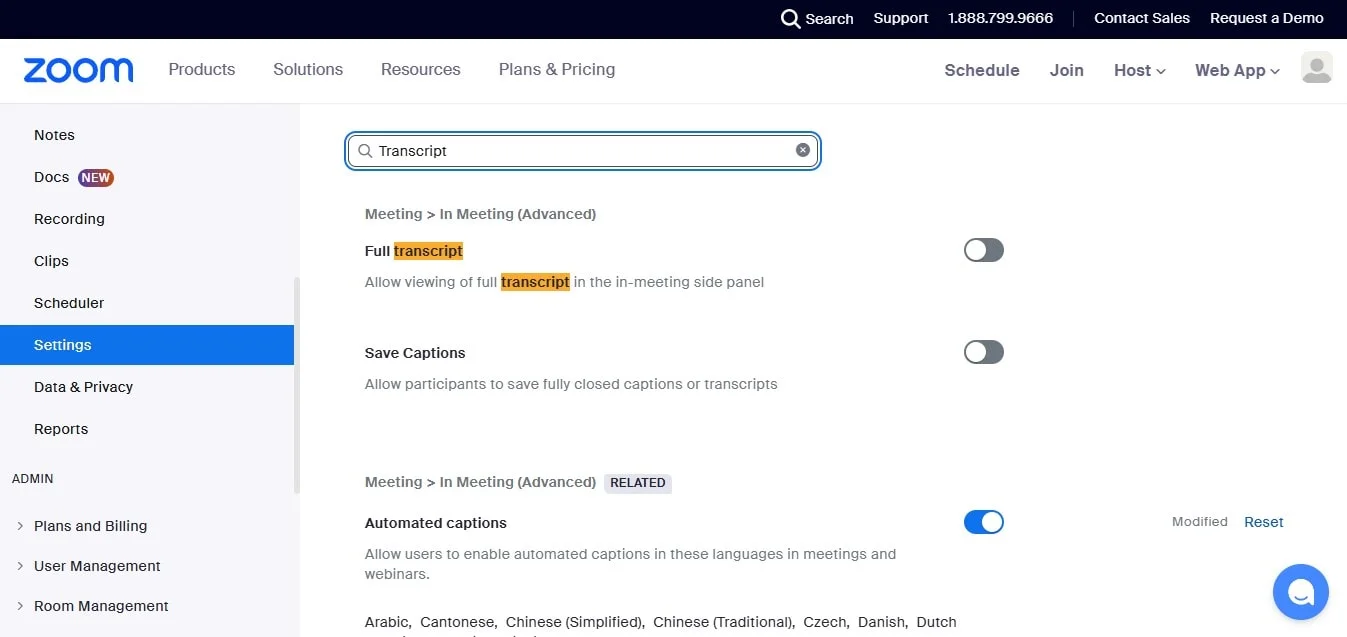
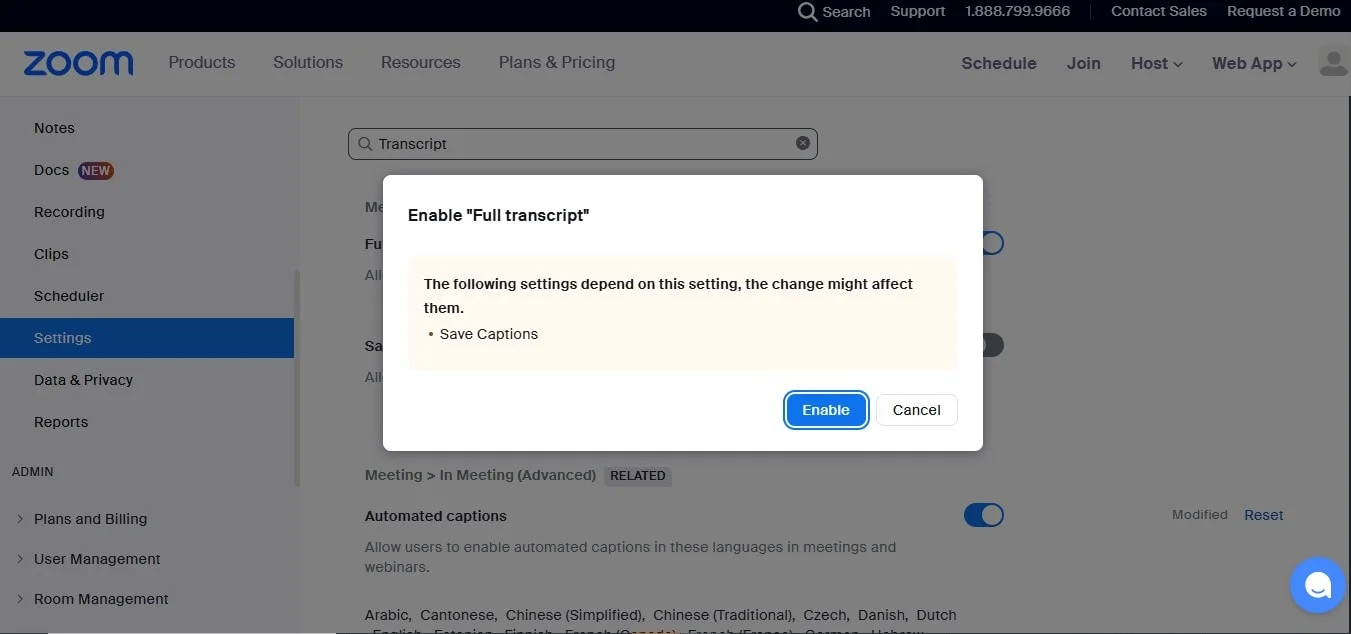
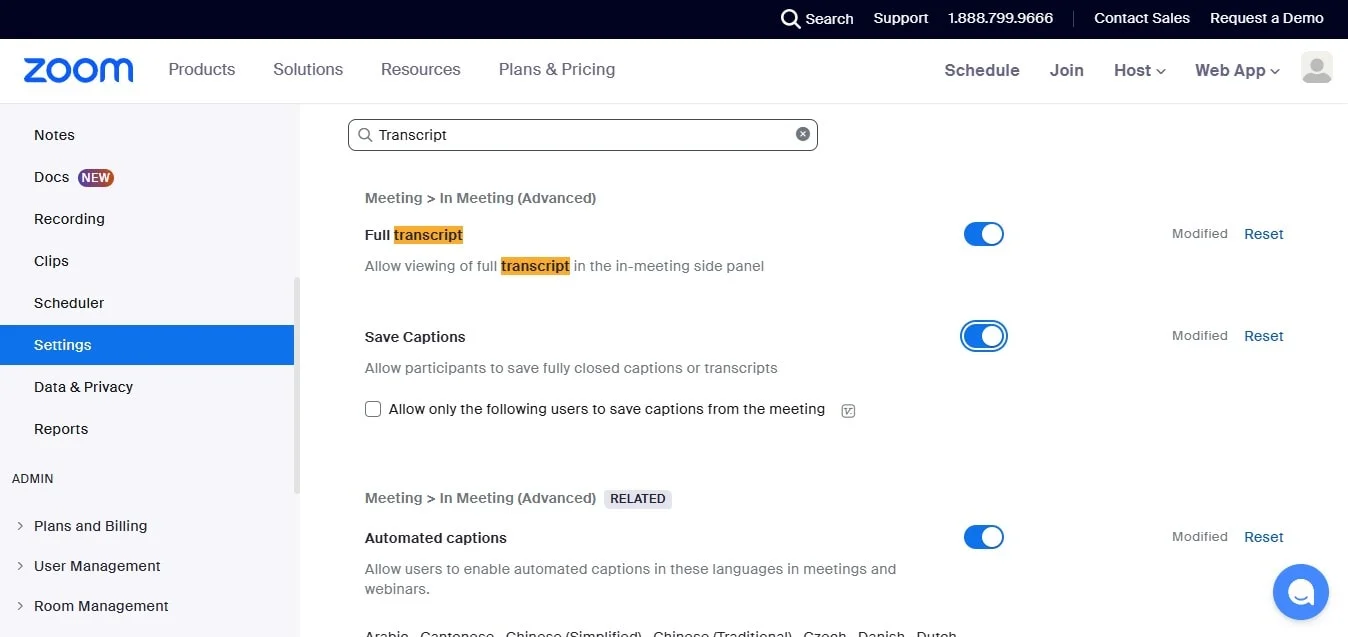
When you enable this the Zoom transcript feature, you will always have a text record of recorded meetings and what was said during meetings, which will help you stay organized in the long run.
How To Transcribe Zoom Recordings Natively
Zoom offers a built-in feature to transcribe your meetings and recordings, but it is important to note that you will need a paid Zoom account such as an education, business, or enterprise license to access your cloud recording with your transcript. If you have the Zoom account basic plan you can download your transcript as a normal text file.
Zoom paid version (business, education, or enterprise)
- Start a Zoom meeting and access the record button.
- Select “record to the cloud” from the dropdown menu.
- Carry on with your meeting, as usual, ensuring that everyone speaks clearly for better audio transcription accuracy
- After the meeting ends, Zoom will process the recording as well as the transcript to save to the cloud.
- Once your meeting ends, navigate to the “cloud recording tab” in the Zoom web portal by selecting “recording” from the main menu.
- Select the Zoom recording you wish to access.
- Select the audio transcript under the recording section to access your transcript.
- Make use of the pencil icon to edit transcripts directly within Zoom.
- Once you are happy with your transcripts, save your changes and share them with your meeting participants.
Users need to know that while Zoom's transcription accuracy is generally accurate, it might not always be perfect. Factors that might influence the quality and accuracy could be accents, rapid speech, and background noise.
Zoom free account
1. First, you need to ensure that you have enabled transcriptions on the Zooms web page as mentioned above.
2. Once you join or start your Zoom meeting, Click on “Closed Captions” at the bottom of the screen.
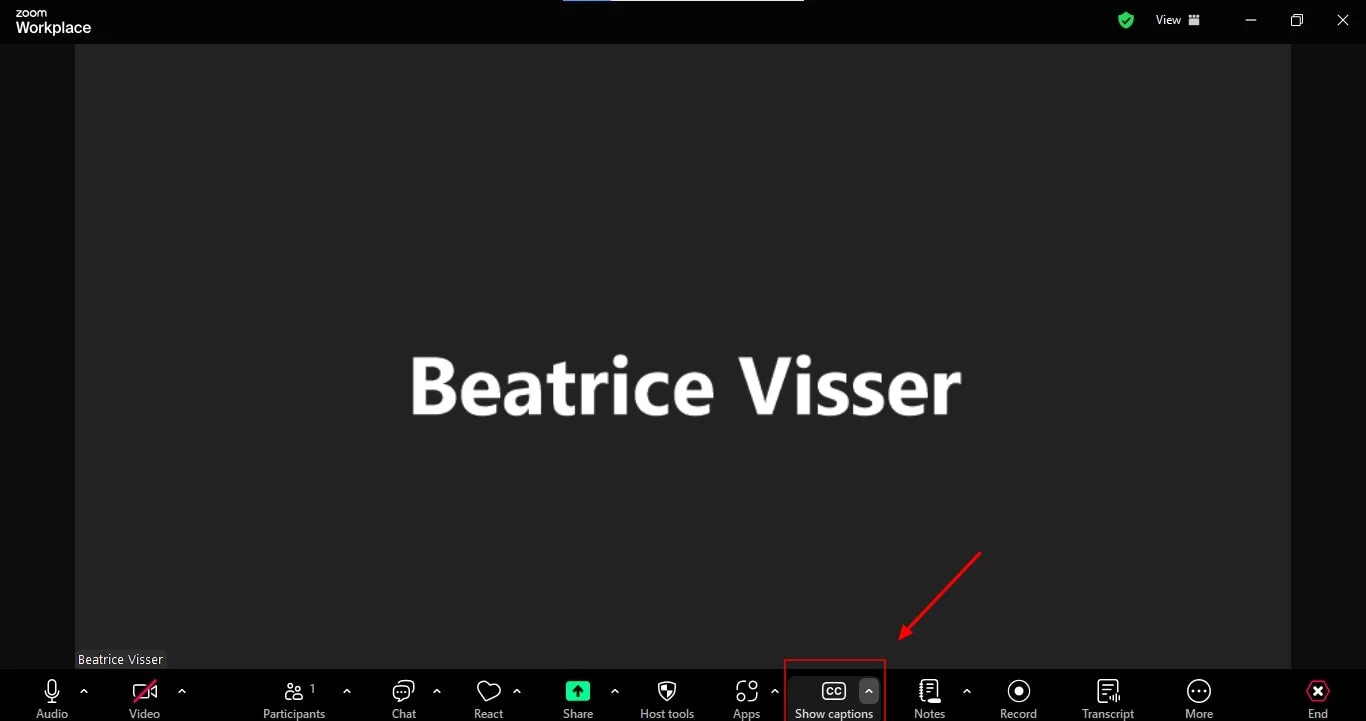
3. In the pop-up menu, click “view full transcript”.
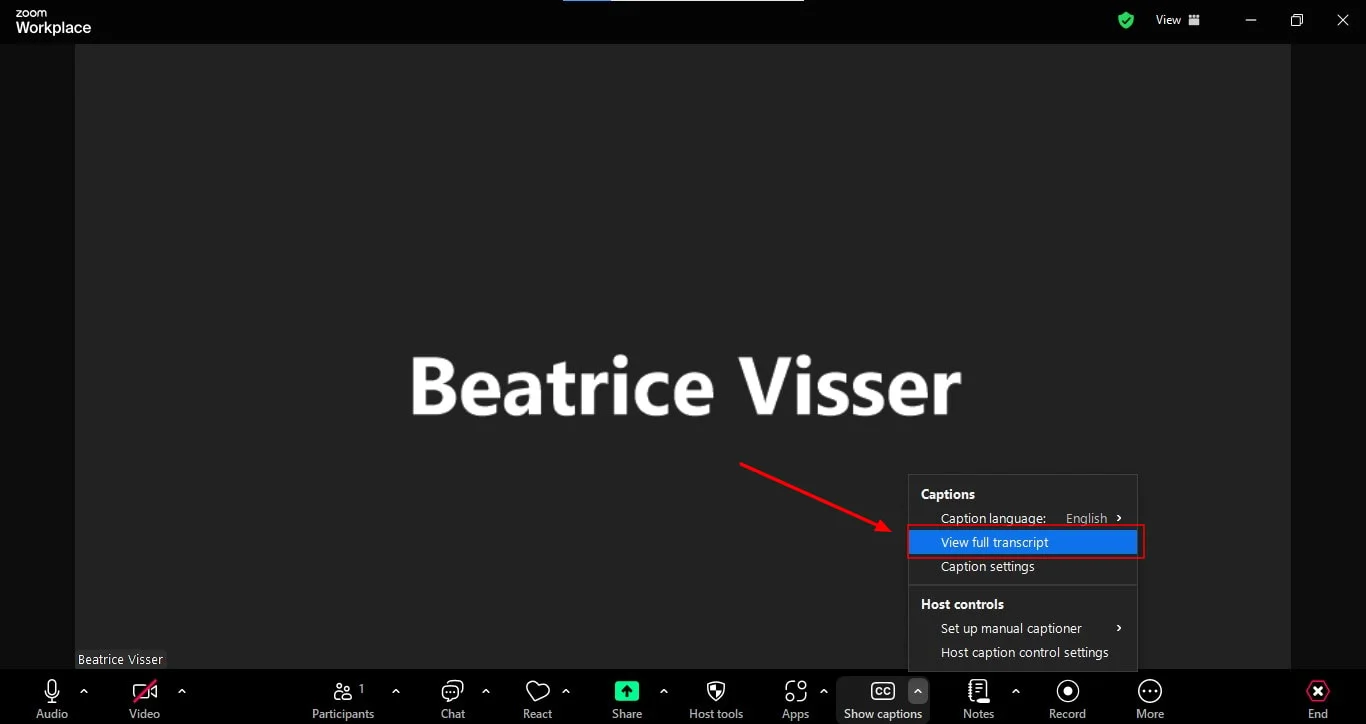
4. You will see the transcript pop up on the right-hand side of your screen.
5. Once you have said what was needed in the meeting, you will see the option to “save transcript” at the bottom of your screen.
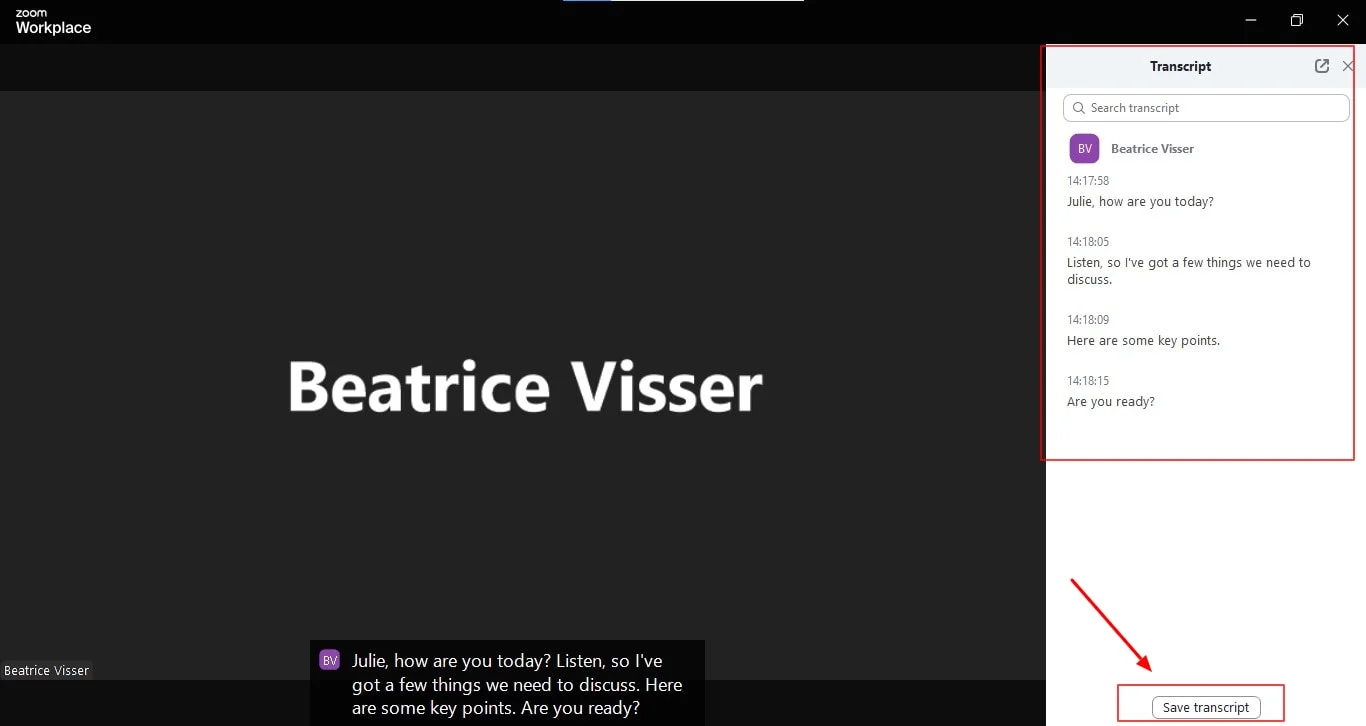
6. Once you click “save transcript” it will then say, “Show in folder”. Click this option.
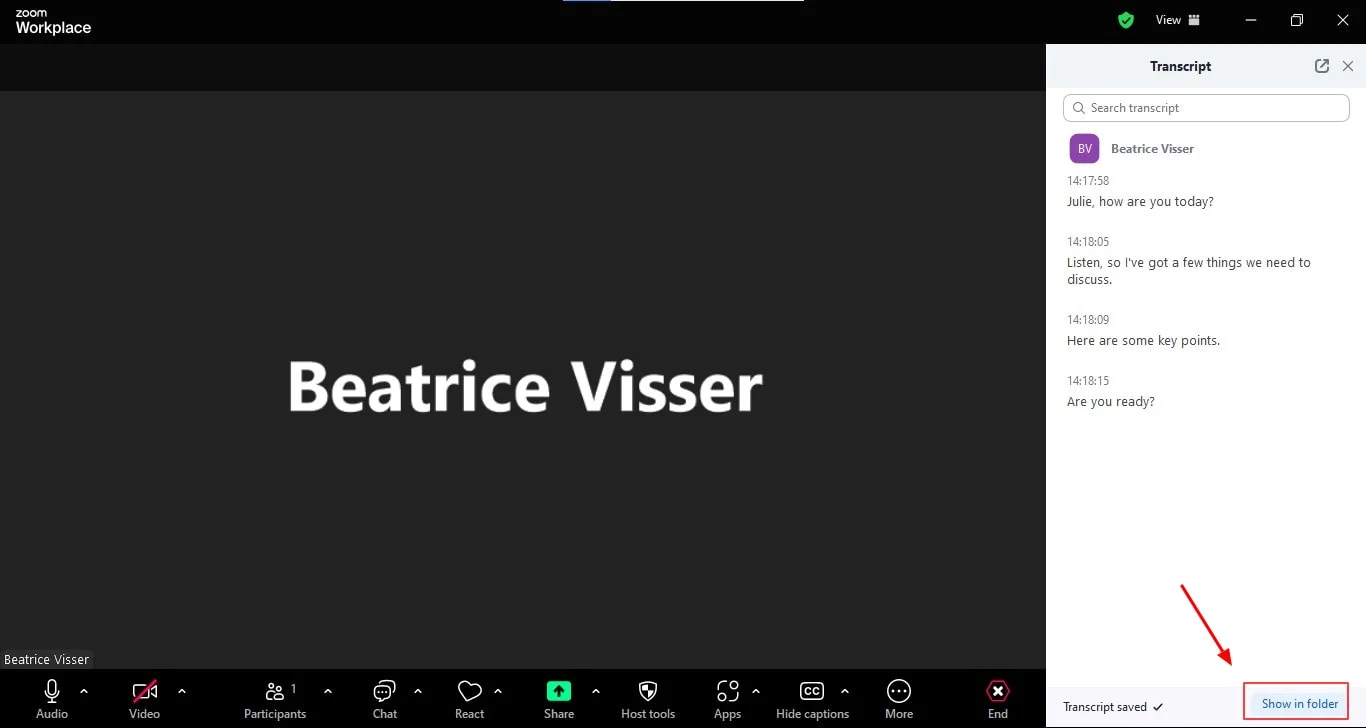
7. It will show you where your transcript and recording are saved, and the format it was saved in.
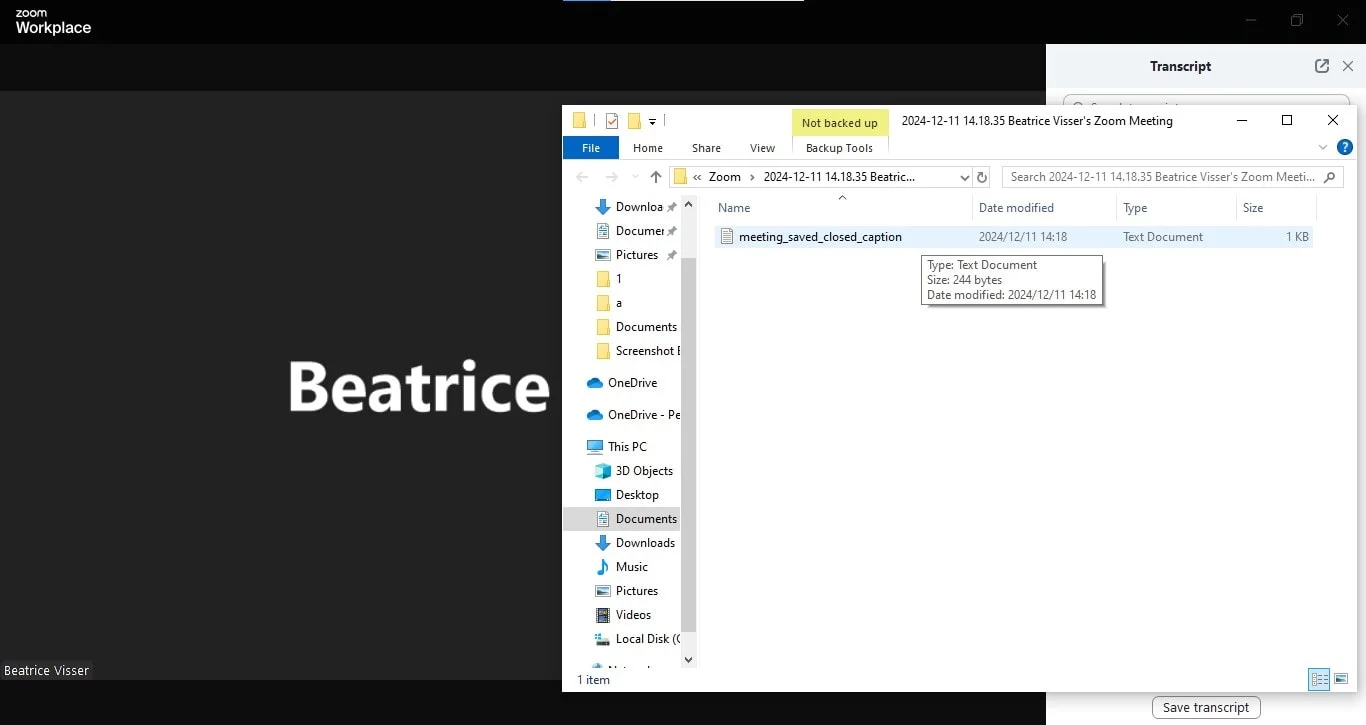
Conclusion
Transcribing Zoom recording files can provide great insights to help ensure better collaboration, and accountability and capture important details. By transcribing meetings into text, it becomes easier to follow up on different items, track different discussions, and review important decisions made. While Zoom offers a full format and great transcription feature, Bluedot offers a recording and transcription tool that is more reliable when you create audio transcripts.
Bluedot can easily record video, as well as transcribe your Zoom meetings, ensuring no information is missed. Bluedot offers searchable transcripts with speaker identification and can detect industry-specific jargon as well.
Bluedot offers more than just transcription, it offers features like meeting transcription software, meeting budget templates, conference call transcription software, meeting minutes transcription software, and even corporate meeting minutes.
Bluedot also recently acquired an AI chat feature that simplifies every user experience and gives you information by typing in a simple prompt, making it much easier to interact with the meeting content.
FAQ
Can I edit the transcripts generated by Zoom?
Yes, you can edit a transcript that has been generated by Zoom. After your meeting finishes, you can access your meeting transcripts on the web portal of Zoom. Keep in mind these transcripts can only be accessed by paid accounts. Find the Cloud recording tab in your Zoom account and clock on the recording file. Click on the pencil icon to make changes. You can either use a text editor or download your transcript as a . VTT format file, and then paste it into a Word document to edit offline.
Where does Zoom store the transcripts?
Zoom stores audio transcripts in the cloud recording section when your cloud recording has been enabled. Go to your recording tab in your Zoom web portal, usually this will be found under account management to help manage your Zoom cloud recordings. If you choose to use the local recording feature, the file will be saved to your device.
How accurate are Zoom transcripts?
The accuracy of Zoom meeting transcription often depends on the clarity of audio, whether the different speakers themselves are talking enough, background noise, and also the quality of your microphone. Zoom has advanced features for audio transcription, but enabling the live transcripts during the meeting will yield the best results. Afterward, you can edit the transcript manually for better precision.

%201.svg)
